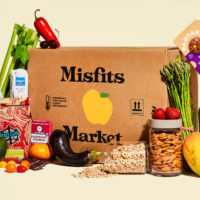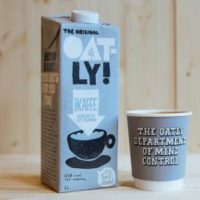
Image Credit: Fast Company
Every week we track the business, tech and investment trends in CPG, retail, restaurants, agriculture, cooking and health, so you don’t have to. Here are some of this week’s top headlines.
In recent developments, the FDA has modernized its 30-year-old definition of “healthy” for packaged foods, requiring products to include specific amounts from food groups like fruits, vegetables, grains, dairy, and protein, while also setting limits on added sugars. This update aims to provide clearer guidance for consumers seeking nutritious options. Meanwhile, despite an increase in global climate finance from 2017 to 2022, funding for the food system has declined to just 2.5%. This reduction highlights a significant gap in supporting sustainable agriculture and addressing food system challenges amid growing environmental concerns.
In other news, we’ve wrapped the first season of our podcast in partnership with AgFunder: New Food Order, a nuanced investigation into the business of tackling our climate and social crises through food and agriculture. Read all about why we launched the podcast, and be sure to subscribe and share!
Our newsletter takes a lot of time and resources to produce. Make a one time or monthly contribution to help us keep it going. Whether it’s $5 or $500, every bit helps and shows us that you value our work.
1. The FDA Has Updated The 30-Year Old Definition of ‘Healthy’ for Packaged Foods – Fast Company
Under the rule, products that claim to be “healthy” must contain a certain amount of food from one or more food groups such as fruit, vegetables, grains, dairy and protein. And for the first time, the rule sets certain limits for added sugars.
2. Despite Rise in Global Climate Finance, the Food System’s Share Falls to Just 2.5% – Green Queen
While public climate finance increased between 2017 and 2022, the amount flowing to food and agriculture declined during this time.
3. Why FDA’s ‘Healthy’ Update Likely Wont Make Us Healthier – Food Fix
It’s been a long road to get here, but even the FDA doesn’t seem to think updating what foods can be labeled as “healthy” will make us much healthier.
4. How Workplace Injuries Spurred the Holiday Strike Against Amazon – Forbes
Thousands of warehouse and delivery workers are participating in the largest strike against Amazon in US history.
5. The High Cost of Cheap Food. and the Historic Halting of a Grocery Merger. – The Checkout
Federal courts blocked the Kroger-Albertsons merger to protect competition. Meanwhile, GoodSAM Foods highlights the human and environmental costs of cheap global agriculture, urging systemic change.
6. Cocaine Induced Opulence – Snaxshot
Trump-era productivity trends, GenZ’s nostalgia for ’80s Wall Street, substance use culture, and provocative insights on modern CEO behaviors.
7. Rebel Foods Secures $210M Series G Funding From Temasek – QSR
Rebel Foods operates over 450 cloud kitchens and has a presence in the UAE and the UK.





